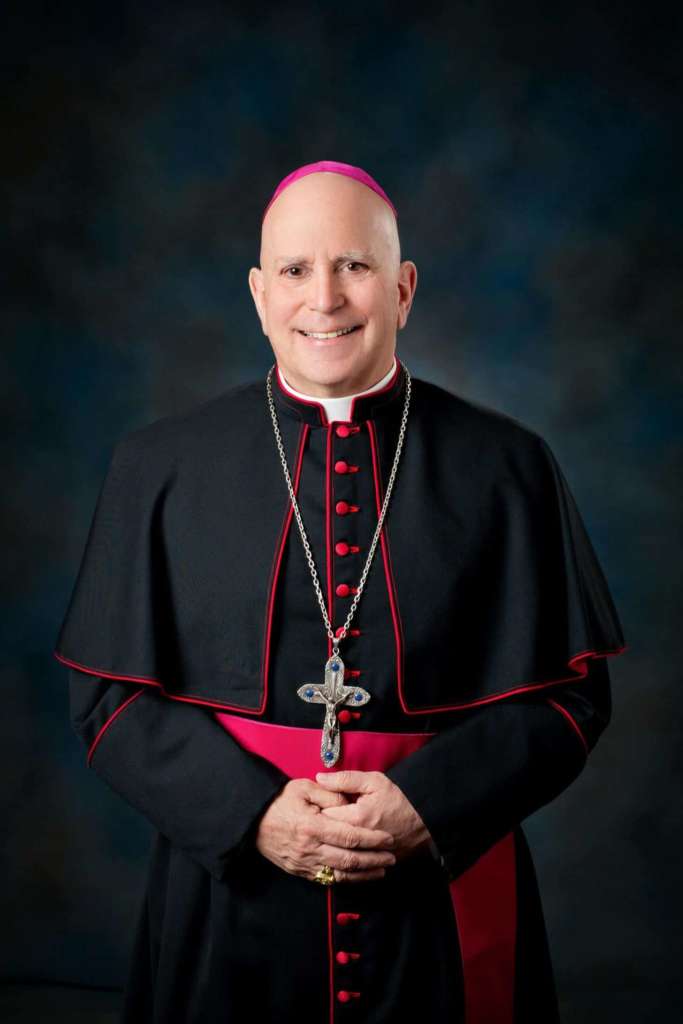Four Colorado bishops representing the Catholic Church have taken a stance on multiple upcoming ballot initiatives: vocally opposing measures to protect reproductive rights and gay marriage, and supporting potential measures that would negatively impact the rights of transgender youths.
In a letter published last month, the four bishops urged fellow Catholics to vote in accordance with their interpretation of Catholic values, claiming that the initiatives could have an impact on “sanctity of life, the family and religious liberty.”
Colorado’s Catholic leadership has put its weight behind multiple conservative ballot initiatives in the past, most of which failed. Most recently, in 2020, they played a large role in the unsuccessful campaign to ban abortion at 22 weeks of pregnancy with Proposition 115.
This year, the bishops have weighed in on five initiatives. They urge followers to vote against two: one which would codify the right to abortion in the state constitution, and another, passed as a resolution (SCR24-003 “Protecting the Freedom to Marry”) by the Colorado legislature, which would strike anti-same-sex marriage language from the state constitution.
Colorado’s Catholic leadership has spoken against both of these initiatives previously. Brittany Vessely, executive director of the Colorado Catholic Conference, appeared at a hearing on SCR24-003 in May to urge legislators to vote against the resolution.
“Marriage is based on the truth that men and women are complementary. The biological fact that reproduction depends on a man and woman, and, the social science that supports the reality that children need both a mother and father to flourish. SCR-003 therefore rejects the truth of what marriage is,” Vessely testified.
This letter also urges support for three measures, all of which would impact public education policy in Colorado, particularly for transgender students.
“Each initiative promotes the right of parents to make decisions that are best for children and affirms Church teaching that parents have the ‘first responsibility for the education of their children,’” the letter reads.
The three initiatives include:
- Initiative #138, “School Choice in K-12 Education,” which would codify a right to “school choice” and “the right of parents to direct the education of their children” in the state constitution.
- Initiative #142, “Parental Notification of Gender Incongruence,” which would require schools to out transgender students to their parents.
- Initiative #160, “Public Athletics Programs for Minors,” which would effectively ban many transgender students from participating in sports.
The last two were among the many initiatives filed by Protect Kids Colorado, a coalition of conservative activists seeking to restrict transgender rights in a way that bypasses the state’s Democrat-ruled legislature.
All three still need to gather enough signatures to be included on the November ballot – with the deadline coming at the start of August. The letter advised that supportive pastors could allow volunteers to gather signatures in their parishes.

Aside from supporting ballot initiatives, the Colorado Catholic Church has been an active participant in conservative culture war issues. In particular, Denver Archbishop Samuel Aquila, one of the authors of the recent letter, has often taken to the front lines – in 2022, he penned an op-ed in the Denver Post attempting to justify discrimination against LGBTQ people.
“Our critics charge that the Catholic Church is discriminating against those who identify as gay or transgender,” Aquila wrote. “But it isn’t discriminatory to tell someone you think his beliefs don’t conform to nature—it’s an act of charity.”
Aquila has also pushed efforts to make LGBTQ people, as he would say, “conform to nature.” In 2019, he called on fellow Catholics to launch conversion therapy programs in their churches, aimed at “healing” gay people by turning them straight.
Aquila and other officials’ staunch commitment to these social issues has been one factor causing international fractures in the Catholic Church. In 2022, Aquila was featured prominently in a letter from conservative Catholic officials worldwide rebuking a group of German priests who were attempting to integrate more liberal values, including acceptance of same-sex relationships, into church practices. The letter warned that this could cause a schism in the Catholic Church.
Earlier this month, those tensions came to a head when the Vatican excommunicated ultraconservative Archbishop Carlo Maria Vigano, after finding him guilty of schism. Vigano, formerly the Vatican’s U.S. ambassador, had previously accused Pope Francis of covering up sexual misconduct by U.S. Cardinal Theodore McCarrick. After reportedly going into hiding following his allegations, Vigano would later fully refuse to recognize the legitimacy of Pope Francis, claiming that under his leadership the Catholic Church had strayed from its path by becoming “inclusive, immigrationist, eco-sustainable, and gay-friendly.”
While Pope Francis has been more lenient on LGBTQ issues than past Catholic leaders – including approving blessings for same-sex couples last year, as well as allowing transgender people to be baptized and serve as godparents – he has also said that gay men should not be ordained as priests. Twice this year, he has reportedly used a homophobic slur during closed Vatican meetings, for which he would later officially apologize.




